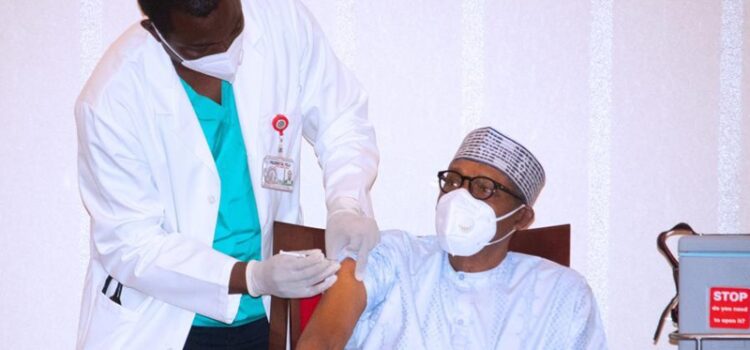Covid-19 Vaccination- Nigeria Response.
As of 31 March 2021, the total number of confirmed cases was 162,891; discharged patients was 151648, and 2057 deaths in all the states, including the federal capital territories.
Before the COVID-19 pandemic, there was an established body of knowledge about coronaviruses’ structure and function, causing diseases like severe acute respiratory syndrome (SARS) and the Middle East respiratory syndrome (MERS) enabled accelerated development of various vaccine technologies during early 2020. On 10 January 2020, the SARS-CoV-2 genetic sequence data was shared through GISAID, and by 19 March, the global pharmaceutical industry announced a significant commitment to addressing COVID-19.
In Phase III trials, several COVID-19 vaccines have demonstrated efficacy as high as 95% in preventing symptomatic COVID-19 infections. As of April 2021, 13 vaccines were authorized by at least one national regulatory authority for public use: two RNA vaccines (the Pfizer–BioNTech vaccine and the Moderna vaccine), five conventional inactivated vaccines (BBIBP-CorV, CoronaVac, Covaxin, WIBP-CorV, and CoviVac), four viral vector vaccines (Sputnik V, the Oxford–AstraZeneca vaccine, Convidecia, and the Johnson & Johnson vaccine) and two protein subunit vaccines (EpiVacCorona and RBD-Dimer).
In total, as of March 2021, 308 vaccine candidates were in various stages of development, with 73 in clinical research, including 24 in Phase I trials, 33 in Phase III trials, and 16 in Phase III development.
In the light of this, many players in the COVID-19 vaccine market, the Federal Ministry of Health and its agencies, the National Primary Healthcare Development Agency, and the National Agency for Food and Drug Administration and Control, has assured that only WHO-approved COVID-19 vaccines will be introduced in the country. Also, depending on availability, it will inform the prioritization of the rolling out of vaccines.
On 2 March 2021, COVAX (Collaboration of WHO, UNICEF, Gavi, and CEPI) shipped in 3.94 million doses of the AstraZeneca/Oxford vaccine Abuja, manufactured by the Serum Institute of India. This was an effort by the COVAX team to deliver at least 2 billion doses of COVID-19 vaccines globally by the end of 2021.
This first batch of Covid 19 vaccine by Covax makes Nigeria the 3rd country in Africa to get the vaccine. It also came with a lot of congratulatory messages from different parts of the world. Tedros Adhanom Ghebreyesus, the World Health Organization Director-General, was among those hailing the jabs’ arrival in Nigeria.
Upon the vaccines’ arrival, though there were some logistics constraints, they shipped in batches to Nigeria’s National Agency for Food and Drug Administration and Control for final assessment and approval. The training was also organized for all health workers across the country on the vaccination exercise.
On 7 March, President Muhammad Buhari as the first citizen of Nigeria, received his first jab of the COVID 19 vaccination. This was in fulfillment with the rolling out phase of the vaccination exercise. The roll-out phase is as follows:
First Phase – Frontline workers and Strategic Leadership
Second Phase – Individuals between age 50 and above
Third Phase – Individuals between the ages of 18 and 49 with underlying health conditions like diabetes.
Last Phase- Individuals between the ages of 18 and 49 without any underlying health conditions.
The first step to getting vaccinated is to book an appointment with NPHCDA on their website.
But despite these outlined phases, it was observed that there is no restriction on who can register on the website.
The vaccination dates are issued without any check for eligibility of different population groups. With this approach, the different phases of the vaccination exercise seem not to be working.
Some centers listed on the website are not carried along with the program. Making the whole process of the vaccination exercise look like Nigeria is not delivering as they have said.
Although putting an end to this health crisis and achieving herd immunity might not take place until 2024, coupled with the surrounding issues on the vaccination, but there is great optimism that the effective measure put in place by the NCDC during the pandemic, if not abandoned, will prevent a third wave of the virus in Nigeria.
0



